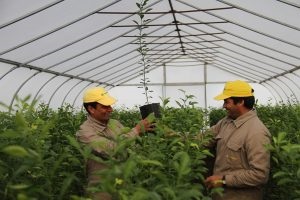Argentina: No U.S. inspections yet for Tucumán packhouses, says San Miguel

While U.S. market access for Argentine lemons was officially granted late last month, one of the country's leading citrus growers says inspectors from the North American country are yet to arrive in the main growing province of Tucumán to give exports the green light in practical terms.
Speaking with Fresh Fruit Portal, San Miguel institutional relations director Lucas Méndez said the approved packhouses were not yet able to export, and given issues of fruit coloring and the timing of harvest, this season would only involve "symbolic" shipments of some late varieties to the United States.
When asked about complaints from groups like California Citrus Mutual (CCM), he described the Californian industry's resistance as "very predictable".
"The studies they [APHIS] did proved that the diseases they claimed weren't there," Méndez said.
"We voluntarily said we were going to export just to the Northeast ports, so fruit won't arrive in California because it will be entering from the other side of the country."
He added the volumes managed by each nation were very different, with the U.S. having around 684,000 metric tons (MT) while in Argentina "we can just talk about 20,000[MT]".
And while the official opening of the United States has been a great milestone for Argentina's lemon industry, the opening of neighboring Brazil has also been cause for optimism.
"While Brazil isn't a market of the size of the United States it's also important," Méndez said.
"They don't have such a culture of eating yellow lemons but the demand is there because we know they even import from Spain, so we have to develop it. 
"Also it could be very attractive for Argentina as it's easier to reach the market."
When asked about the current season, he said the window with the Russian market had been adjusted as the Northern Hemisphere season was extended had a very good campaign compared to other years.
"It [Russia] continues to be relevant for Argentina and we'll attend to it like we do every year. The prices of last year aren't there but that's a general issue, not just in Russia," he said, adding that San Miguel's volume for the Russian market will be similar to last year's 8,000MT even though they are running later.
"Prices are not moving at the rate of inflation in Argentina, which has an impact on our costs. We have to be more efficient to continue being competitive. This continues to be the Achilles heel in terms of competitiveness."













































